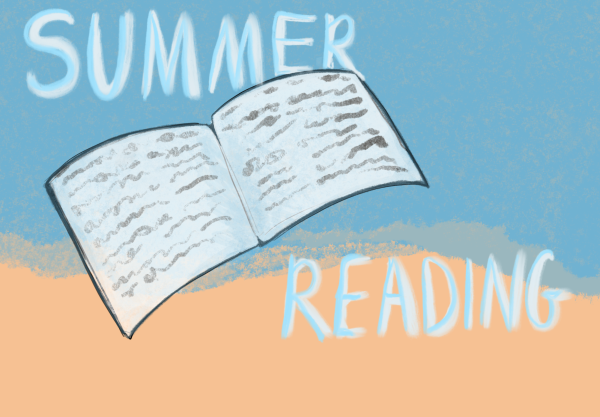Students Should Prioritize Summer Reading
Every June, students within Walpole Public Schools (WPS) are given options of books to read over the summer and told to take notes for a class discussion at the beginning of the new school year. Since COVID-19, WPS has made summer reading optional; however, students must complete and receive a passing grade on it in order to achieve honors or high honors in the first term. For the summer of 2023, WHS has officially made summer reading mandatory again for all students. Unfortunately, this will not motivate all students to read over the summer. Not every student has the same concentration level or motivation needed to place focus on a book, resulting in many not even trying to do so.
Summer coursework is traditionally only given to students taking AP classes in the coming fall; therefore, many students do not receive work over their school break, resulting in a loss of crucial skills learned in the past school year, referred to as the “summer slide.” According to the New York State Education department, students lose, on average, about two to three months of proficiency in grade-level mathematical computation skills over the summer. Scholastic attributes this loss largely to the lack of reading. Additionally, students who read over the summer are shown to have gained an average of 1 month of reading proficiency. In this instance, students placed in the same level courses for the fall may not be at the same level academically if the same level of reading was not completed.
Reading can be thought of like exercise: dedicating one hour a day to reading can strengthen areas in the brain the same way spending one hour a day working out strengthens the muscles in the body. It is essential for keeping the brain alert as well as maintaining academic skills, specifically literary skills. Reading is effective in building a person’s knowledge from elementary level all the way through adulthood. Throughout their school careers, students benefit from reading by increasing their knowledge and critical thinking skills for their upcoming school year.
Many students groan at the thought of summer reading, as it is often thought to consist of nothing but classics and novels. However, reading a book of choice can be more beneficial than an assigned academic book. Choosing a book that interests students engages them more, allowing more information from the text to be understood. Books of all genres and styles can be effective, whether it be a graphic novel or a magazine. Reading outside of an educational setting holds benefits besides academia, such as improved concentration, memory, vocabulary, and emotional intelligence.
Local libraries and bookstores offer a variety of topics to patrons and expose them to similar works. Whether it be on a road trip, plane, or in the backyard, summer reading is accessible and beneficial to all ages. In order to see improvement in their following school year, students must view summer reading as a priority, as it still falls under the category of schoolwork.

Erin Malinn, class of 2024, is the Opinion Editor of The Searchlight and has been a part of the staff since her sophomore year. Outside of Walpole High...











